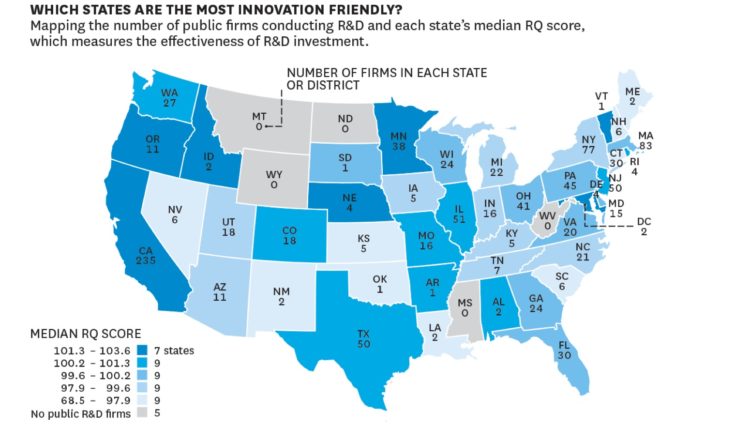Landmark, Big Data Research of 262,000+ People Reveals Income, Employment, Health, and Age Strongly Relate to Happiness
Pittsburgh, PA (PRWEB) May 13, 2015 Polling and consumer insights company CivicScience today made an unprecedented research study available to the public in hopes of furthering our collective understanding of happiness and its root causes. Called “Profiling Happy” (#profilinghappy), the study looks at reported levels of happiness from over 262,000 Americans and their relationship to thousands of other attributes for demographics, lifestyle traits, media behaviors, and other characteristics.
 CivicScience has published the study’s large set of aggregate cross-tabulations to allow researchers, journalists, and other individuals to analyze characteristics that are most correlated with happiness and unhappiness.
CivicScience has published the study’s large set of aggregate cross-tabulations to allow researchers, journalists, and other individuals to analyze characteristics that are most correlated with happiness and unhappiness.
It is available for the public to download at: http://info.civicscience.com/profilinghappy/
“Even though many studies have looked at particular aspects of happiness, we believe this may be the largest empirical study ever conducted about human traits and attributes that most strongly align with happiness,” said John Dick, founder and CEO of CivicScience. “Given that May is Mental Health Awareness month, we believe these insights are well timed and should provoke more discussion and societal thinking about things that relate to happiness, and to unhappiness too.”
Examples of some key findings in CivicScience’s Profiling Happy study include:
- Aggregate Happiness: The good news is that overall, the general population is six times more likely to say they are happy than unhappy.
- Income: Many higher income traits are closely associated with greater happiness, particularly when looking at how one “splurges” on oneself.
- Employment: Happiness in one’s job is one of the strongest correlations with overall happiness, and being unhappy in a job more greatly associates with unhappiness than being unemployed.
- Health: Those who say they are healthy overall are 11X more likely to be happy, while those who say they are not healthy are 133% more likely to be unhappy.
- Age: Beginning with 30 to 34 year-olds, every age group gets progressively happier than the general population, peaking among those aged 65 and older.
Hundreds of additional attributes ranked by happiness are published in the full online report.
Lamar Pierce, Associate Professor of Organization and Strategy at Olin School, Washington University in St. Louis (and a CivicScience academic advisor), stated: “One of the project’s goals is to harness the collective expertise of the many researchers and thought leaders who study the roots of happiness. These data represent the tremendous potential for CivicScience to facilitate expanding our knowledge on consumers, health, beliefs, and broader public welfare.”
Added CivicScience’s John Dick, “While we’re excited about many of the insights the study uncovered, we hope other researchers, students, writers, designers, deep-thinkers, and even comedians will find things that we missed. We can’t wait to see what people uncover.”
CivicScience invites the public to review the data, talk about it on social sites using the hashtag #profilinghappy and to submit infographics based on the data for inclusion on the company’s blog.
About the methodology for this study:
The consumer sentiment data in the Profiling Happy report were collected from January 1, 2013 to April 24, 2015 from 262,674 respondents who answered CivicScience web polls hosted by a network of hundreds of diverse, third-party publisher sites. Respondents voluntarily answered the polls with no financial incentives. All respondents included in this report answered the question “How happy are you today?” as well as questions about gender and age group, to ensure the data is weighted for U.S. Census representativeness for those demographics. Respondents also answered any number of other possible poll questions spanning a range of topical categories — from core demographics to personal finances, media consumption, shopping preferences, politics and ideology, health and wellness, lifestyle, and more. For any given question highlighted in this report, a minimum of 2,000 respondents were collected. Respondents were further filtered and sorted by other statistical models (refer to the Glossary in the full report).
of topical categories — from core demographics to personal finances, media consumption, shopping preferences, politics and ideology, health and wellness, lifestyle, and more. For any given question highlighted in this report, a minimum of 2,000 respondents were collected. Respondents were further filtered and sorted by other statistical models (refer to the Glossary in the full report).
About CivicScience
CivicScience, Inc. provides the leading intelligent polling and real-time insights platform, the InsightStore™. Its proprietary platform powers the world’s opinions and quickly gets that data to the decision makers who care. Every day, CivicScience polls ask millions of people questions related to thousands of topics, while its powerful data science and big data technology analyzes current consumer opinions, discovers trends as they start, and accurately predicts future behaviors and market outcomes. CivicScience polls run on hundreds of premier websites, in addition to its own public polling site at http://www.civicscience.com. CivicScience’s InsightStore™ is used by leading enterprises in marketing research, advertising, media, financial services, and political polling.
analyzes current consumer opinions, discovers trends as they start, and accurately predicts future behaviors and market outcomes. CivicScience polls run on hundreds of premier websites, in addition to its own public polling site at http://www.civicscience.com. CivicScience’s InsightStore™ is used by leading enterprises in marketing research, advertising, media, financial services, and political polling.
For the original version on PRWeb visit: http://www.prweb.com/releases/2015/05/prweb12716463.htm
Image: sciondriver, happiness, Flickr Creative Commons





 CivicScience has published the study’s large set of aggregate cross-tabulations to allow researchers, journalists, and other individuals to analyze characteristics that are most correlated with happiness and unhappiness.
CivicScience has published the study’s large set of aggregate cross-tabulations to allow researchers, journalists, and other individuals to analyze characteristics that are most correlated with happiness and unhappiness.



